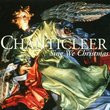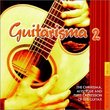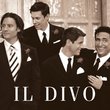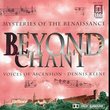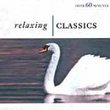| All Artists: Orlande de Lassus, Giovanni Pierluigi da Palestrina, Heinrich Schutz, Domenico Mazzocchi, Healey Willan, William [composer] Walton, Thomas Tomkins, Marc-Antoine Charpentier, Marin Marais, John Dunstable, Henry Purcell, Les Voix Baroques Title: Canticum Canticorum Members Wishing: 1 Total Copies: 0 Label: ATMA Original Release Date: 1/1/2008 Re-Release Date: 3/25/2008 Genres: Special Interest, Pop, Classical Styles: Vocal Pop, Opera & Classical Vocal, Chamber Music, Historical Periods, Baroque (c.1600-1750), Classical (c.1770-1830), Early Music Number of Discs: 1 SwapaCD Credits: 1 UPC: 722056250320 |
Search - Orlande de Lassus, Giovanni Pierluigi da Palestrina, Heinrich Schutz :: Canticum Canticorum
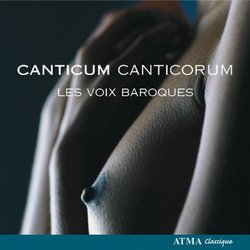 | Orlande de Lassus, Giovanni Pierluigi da Palestrina, Heinrich Schutz Canticum Canticorum Genres: Special Interest, Pop, Classical |
Larger Image |
CD DetailsSimilarly Requested CDs
|
CD ReviewsMusic For and Through the Ages Dean R. Brierly | Studio City, CA | 03/31/2008 (5 out of 5 stars) "I've listened to this disc half a dozen times already, yet I still don't know if I can adequately do justice to its sublime vocal magic. It's comprised of a number of songs inspired by the Song of Songs, a book in the Bible that celebrates both divine and physical love. The composers, to name but a few, range from the late-Medieval period (John Dunstable), through the Renaissance (Giovanni Pierluigi da Palestrina), Baroque (Marc-Antoine Charpentier) and early 20th century (William Walton). Those accustomed to contemporary sounds may have a difficult time accessing the sensual nature of this period music, so subtle and discreet is it (the disc's sexy cover photo notwithstanding). But it takes no effort at all to be swept away to another time by the gorgeous melodies of all the composers represented here, as well as by the inspired singing of the chamber ensemble known as Les Voix Baroques. Abetted by an able group of performers on period instruments, they evoke a rich vein of emotional transcendence in the music and romantic imagery in the lyrics. My favorite lines come from Charpentier's "Dilecti Mi": "My soul sighs, fainting towards you. My heart, mouth, tongue, senses express the languor of love." If only today's popular music lyrics were so eloquent. Many of the songs are written in a minor key, and cast a mournful, contemplative mood, but one that is never oppressive or despairing. This is music to which attention must be paid to gain access to its secluded core--where a calming oasis for mind and spirit awaits those eager to escape for an hour or so a culture of increasing psychic dissonance." Quam pulchra est Jim Shine | Dublin, Ireland | 03/31/2008 (5 out of 5 stars) "For centuries, biblical scholars have struggled with the Song of Songs. It can't be just a set of love poems, the thinking goes, because then why would it be in the Bible? And if it's not just a set of love poems, what is it? An allegory, is the general answer, of Yahweh's relationship with his people, or Christ's with the church, or even something involving the Virgin Mary. To my mind, the poems are a little too erotic for an allegorical interpretation, but a CD review isn't really the place for a theological discussion. If we're to judge things by their covers, then "Canticum canticorum" leans heavily on the sensual side of the argument, but in fact the various approaches to the Song of Songs all feature here. Les Voix Baroques here comprise 6 singers (2 sopranos, countertenor, tenor, baritone, and bass-baritone) and 9 instrumentalists, including "guest musical director" Stephen Stubbs. With one voice per part, this allows the recording to come closer to the singers than one would get with a full choir. And that's the first thing you notice here - the immediacy of the voices. It's a gorgeous-sounding disc. The lovely rich sound of the Lassus piece is followed by a much sparer work from his contemporary Palestrina; this latter has a raptness to it, the composer making the most of all the sibilants in the opening line. Following this are two pieces by Schutz, which came as a shock to me because the last Schutz I'd listened to was Philippe Herreweghe's recording of the Opus ultimum; these pieces are much earlier, and are a vivd reminder that he was also a composer of Italian madrigals. Both are for 2 tenors and 2 cornets, and at times they're practically operatic (listen to the cries of "amore" in "Adjuro vos"). Here and in 2 subsequent pieces, it seems that Schutz is the one who most adheres to a sensual interpretation of the Song of Songs. The longish dialogue for soprano and chorus by Mazzocchi is the first on the disc that is strictly religious, although it's not necessarily a Christianity many of us would recognise today: "A bundle of myrrh is my well-beloved Christ unto me, He shall lie betwixt my breasts". Somehow this successfully segues into 2 pieces by Healey Willan written nearly 300 years later - the one-voice-per-part makes the difference seem smaller, I suppose. These are lovely; although "in honour of Our Lady" they are romantic pieces. Walton's "Set me as a seal" sounds remarkable here without a big choir; the intimacy of the small setting gives it great power in the line "love is strong as death". I didn't immediately warm to the Tomkins piece that follows, but I think it simply suffered by comparison. Tracks 12 to 14 form a little French section - 2 pieces by Charpentier (with what I presume is authentic French-sounding Latin) with an instrumental by Marais between, a delightful passacaglia for 2 violins that fits perfectly with everything else. Another highlight is the Dunstable piece; the 3 men bring both warmth and gentleness to it. And finally Purcell's "My beloved spake" - the only piece here that I already have in my collection (Decca's Winchester Cathedral one from 1992), which allows a direct comparison and confirms that I find the up-close recording of the voices to be far more successful than the big acoustic of a cathedral. To sum up: a marvellous disc, bringing together pieces from across the centuries in a well-designed programme, wonderfully sung and well played. I imagine this will end up as one of my highlights for 2008." The 'Song of Songs' Sung Sensuously ... Giordano Bruno | Wherever I am, I am. | 02/25/2009 (5 out of 5 stars) "... as sensuous as the cover art suggests! The Canticum canticorum, supposedly the mystic expression of the love of the Soul for God, remains easily the most rapturous love poetry of all time, and there's never been any doubt in the mind of a musician about the physicality of that love.
The music on this CD ranges through the ages from 14th C England to 17th C Germany to 18th C France to 20th C Canada, but the limpid, langourous, lascivious affect of the music remains decidedly constant. I'm not sure this would appeal to my teenage son as "date music", but it should. If I were to look for a flaw in the performance, it would only be that the singers and instrumentalists accentuate the continuity of affect a wee bit more than historical authenticity might allow. But who cares, when the singing is so luxurious? The 'samples' of this recording are worth more, I think, than any number of words." |

